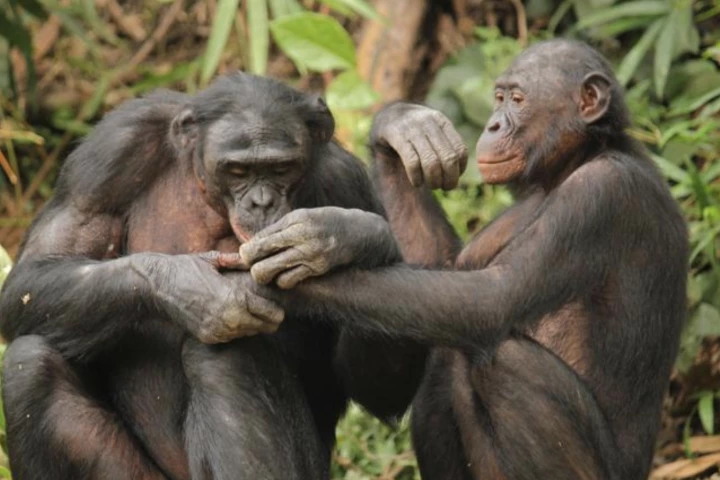Durham University
-
A fascinating new look into the private lives of apes has found that chimps settle conflict with friends with genital contact, much like their bonobo cousins. This sheds light on where our own sexual behavior originates, some six million years ago.
-
Before you hop on your next Zoom call, you might want to tailor your background in a very particular way, says a new study. Doing so could make everyone else on the call perceive you as being more competent – whether or not you really are.
-
Some 19 years on from an initial hint, the same UK astronomers have discovered one of the biggest black holes known to date. They also believe the technology on hand for their findings will help shed new light on one of space's biggest mysteries.
-
It’s believed that the Moon formed billions of years ago, from debris from a cosmic collision with Earth. New high-resolution simulations not only illustrate the idea in stunning detail, but reveal that the Moon’s birth might have taken mere hours.
-
There are already places where homes are built on stilts, to avoid seasonal floods. A new study, however, suggests that doing so may also significantly reduce the risk of being bitten by malaria-carrying mosquitos.
-
Researchers claim they've come up with the world's first manufactured non-cuttable material, just 15 percent the density of steel and impervious to drills or angle grinders. They say it could make for indestructible bike locks and lightweight armor.
-
There is a long line of research projects aimed at leveraging the famous sensitivity of canine noses to detect risks to human health. But could they be trained to sniff out the scent of COVID-19 and offer a non-invasive way to detect the disease.
-
Scientists studying the movement of seafloor sediment have found that underwater avalanches are driving microplastics into the deep ocean, which may help researchers better map the distribution of waste throughout the marine environment.
-
According to a new study, the Large Magellanic Cloud, a nearby dwarf galaxy, is on a collision course with the Milky Way. But there’s no need to worry just yet – the starry smashup won’t begin for another two billion years or so.
-
Currently, in order to check if someone has malaria but isn't showing any symptoms yet, a blood sample has to be drawn and analyzed. Thanks to an ongoing research project, however, it may soon be possible to detect the disease on the spot within seconds – using sniffer dogs.
-
Our universe seems to contain a suspiciously perfect amount of "dark energy" to sustain life. But new research suggests that life is still possible even with far more dark energy than we have, and the results have some big implications for the multiverse theory.
-
What was once a hotspot for the leopards of Africa has experienced an alarming population decline, with new research finding that numbers of the large cats are plummeting due mostly to illegal hunting. If the trend isn't reversed, the animals could be gone in the region within three years.
Load More











